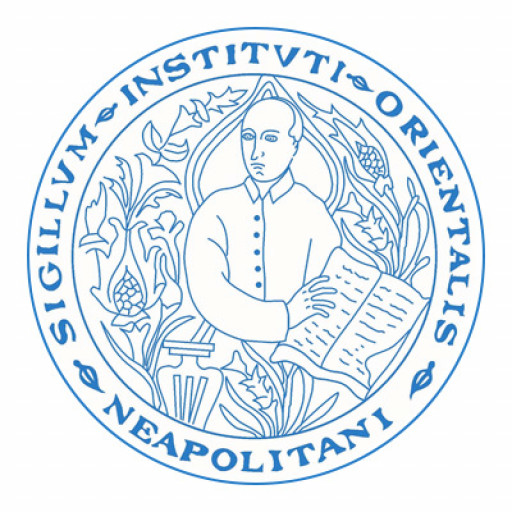Photos of university / #unioslo
Program Description: European Languages at the University of Oslo
The European Languages program at the University of Oslo offers a comprehensive and in-depth exploration of several key languages and cultures across Europe. Designed for students passionate about language, literature, linguistics, and intercultural communication, this program provides a solid foundation in multiple European languages, including but not limited to French, German, Spanish, Italian, and Russian. Students will develop advanced language skills, enabling them to communicate effectively, analyze texts critically, and understand the cultural contexts that shape European societies.
Throughout the program, students engage with diverse course offerings that cover language proficiency, historical development, literary traditions, and contemporary societal issues related to each language. Courses are designed to foster both theoretical understanding and practical skills, emphasizing oral and written communication, translation, and cultural competence. The program encourages active participation through seminars, workshops, and language laboratories, providing ample opportunities to interact with native speakers, participate in intercultural projects, and immerse themselves in language use.
In addition to language-specific courses, students have the opportunity to explore European history, politics, and society, gaining a broader understanding of the continent’s rich cultural tapestry. The program also emphasizes research skills, critical analysis, and intercultural awareness, preparing students for careers in international relations, translation, education, cultural management, or further academic study.
The university’s strong connections with European institutions and partner universities facilitate exchange programs and internships abroad, enriching students’ educational experience and fostering global perspectives. The faculty comprises experienced linguists, historians, and cultural scholars dedicated to providing high-quality education and mentorship.
Graduates of the European Languages program will be equipped with multilingual competence, intercultural sensitivity, and analytical skills vital for a range of professional fields. Whether pursuing careers in diplomacy, media, publishing, tourism, or academia, students will find this program to be an excellent foundation for engaging with the diverse cultures and languages of Europe. With its blend of language mastery, cultural insight, and practical application, the European Languages program at the University of Oslo prepares students for dynamic international careers and lifelong learning in a globalized world.
The Bachelor's degree in European Languages at the University of Oslo offers students a comprehensive and in-depth understanding of the diverse languages, cultures, and literatures of Europe. The program is designed to develop advanced language skills in one or more European languages, such as French, German, Spanish, Italian, or other languages offered by the university, alongside a solid foundation in linguistic theory, literature analysis, and cultural studies. Throughout the program, students engage in rigorous coursework that combines language proficiency with critical thinking and interpretive skills, enabling them to analyze texts, communicate effectively, and gain a deeper appreciation of European cultural heritage.
The curriculum begins with fundamental courses in language and linguistics, emphasizing grammar, vocabulary, pronunciation, and oral and written communication skills. As students progress, they delve into literature classes that explore classic and contemporary works, fostering an understanding of historical contexts, literary movements, and thematic developments across different periods and countries. Cultural studies components are integrated into many courses, providing insights into societal, political, and historical aspects that have shaped European identities. Students also have opportunities to participate in language immersion programs, exchanges, and internships to enhance their practical language use and intercultural competence.
Research methods and academic writing are integral parts of the program, preparing students for further studies or careers in areas such as translation, international relations, journalism, education, and cultural management. The program encourages active participation in seminars, group projects, and presentations, fostering collaborative skills and academic confidence. Additionally, students may choose elective courses in related fields like history, politics, or media studies to tailor their education to individual interests and career goals.
Graduates of the European Languages program are well-equipped to pursue careers in multinational companies, diplomatic service, translation and interpretation, publishing, and cultural organizations. The program also provides a strong foundation for those interested in continuing with master's or doctoral studies in linguistics, literature, or cultural studies. With a curriculum designed to promote language mastery, cultural literacy, and analytical abilities, the European Languages bachelor's degree at the University of Oslo offers a vibrant academic environment and a pathway into a globalized world where language and culture are essential.
Entry requirements for the Bachelor’s and Master’s programmes in European Languages at the University of Oslo typically include a completed secondary education that qualifies for university admission in Norway. Applicants are expected to demonstrate proficiency in one of the languages offered, such as French, German, Spanish, Italian, or other European languages, depending on the specific programme. For international applicants, proof of English proficiency is required, usually through tests such as TOEFL or IELTS, unless their previous education was conducted in English. Additionally, applicants must submit transcripts, letters of motivation, and may need to meet specific grade criteria or prerequisite courses relevant to the chosen language and specialization.
For the Bachelor's programme, the general entry requirements include completing upper secondary school with a Norwegian diploma or an equivalent qualification from another country. Specific requirements may include coursework in languages, humanities, or social sciences. The admission process considers academic records, motivation letters, and, in some cases, relevant experience or language skills.
For the Master's programme, applicants typically need a relevant Bachelor's degree in European Languages, Modern Languages, or a related field with a certain minimum grade point average. Some programmes may require a Bachelor's degree with specific coursework in linguistics, literature, or cultural studies related to the target language. Applicants also submit a letter of motivation outlining their interest in the programme and their career goals.
Language proficiency requirements specify a high level of skill in the language of specialisation, often demonstrated through language exams or coursework. The university values diverse cultural and academic backgrounds, encouraging applications from well-qualified candidates worldwide.
Candidates are also advised to review the specific admission criteria published on the official University of Oslo website for each programme and language specialization, as requirements may vary slightly depending on the language and degree level. Overall, the programme stresses academic excellence, language skills, and clear motivation from applicants to ensure a successful academic experience in European Languages at the University of Oslo.
The University of Oslo offers various financing options for students enrolled in their European Languages programme. Tuition fees for international students vary depending on their nationality and residency status; however, many programs, including language studies, may be tuition-free for Norwegian and EU/EEA students due to government policies. Non-EU/EEA students are generally required to pay tuition fees, which are set annually and can range from approximately €4,000 to €12,000 per year depending on the specific course and level of study.
Students are encouraged to explore scholarships and grants offered by the university, the Norwegian government, or external organizations. The University of Oslo participates in the Erasmus+ Programme, which provides opportunities for exchange students to receive grants that help cover travel and living expenses. Additionally, students can apply for university-specific scholarships based on academic merit, financial need, or a combination of both.
Living costs in Oslo are relatively high, impacting students' overall expenses. The university provides resources and guidance about budgeting, employment opportunities, and financial planning to help students manage their expenses. International students may work part-time during their studies, subject to visa regulations, typically up to 20 hours per week during academic sessions and full-time during holidays, which can significantly assist in covering living costs.
Student loans and grants are available through the Norwegian State Educational Loan Fund (Lånekassen) for eligible students, particularly Norwegian residents or those with domicile in Norway. These loans are repayable after graduation and can be used to finance living costs, books, and other study-related expenses.
The university also promotes inclusive policies and support services to ensure that students facing financial difficulties can access assistance and advice. The combination of government funding, possible scholarships, part-time work opportunities, and personal financial planning constitutes the primary avenues for financing a European Languages degree at the University of Oslo.
The Master’s degree in European Languages at the University of Oslo offers students an in-depth study of several key languages, including French, Spanish, Italian, and German. This programme is designed to develop advanced linguistic skills, cultural competence, and critical understanding of the history, literature, and societal contexts of these languages. It provides students with a unique opportunity to immerse themselves in the languages they choose to specialise in, supported by comprehensive coursework that covers linguistics, cultural studies, translation, and literary analysis.
Throughout the programme, students engage in a variety of activities aimed at enhancing their communicative abilities and intercultural awareness. They are encouraged to participate in internships, study abroad opportunities, and collaborative projects that connect theory with real-world applications. The curriculum is structured to include both compulsory core modules and elective courses, allowing students to tailor their studies according to their interests and career aspirations. In addition, the programme emphasizes the development of research skills, preparing graduates for careers in academia, translation, international relations, publishing, media, and cultural management.
Students also benefit from the university’s rich academic environment, which fosters interdisciplinary learning and encourages engagement with contemporary issues affecting European societies. The programme provides access to modern facilities, libraries, language laboratories, and a vibrant academic community. Graduates of this programme acquire not only advanced language proficiency but also a nuanced understanding of the cultural and societal contexts within which European languages are used. They are equipped to participate effectively in international settings and to contribute significantly to fields requiring expert knowledge of European languages and cultures.
The Master’s programme typically lasts two years, with coursework, research, and thesis writing constituting the core components. Admission requires a relevant bachelor’s degree, proficiency in the chosen language(s), and a demonstrated interest in European cultural and linguistic studies. Upon completion, graduates are awarded a Master’s degree, which opens up diverse professional opportunities across sectors that require multilingual expertise and cultural literacy. The programme’s aim is to produce well-rounded, critically engaged scholars and professionals who are prepared to contribute to global and European intercultural relations.








